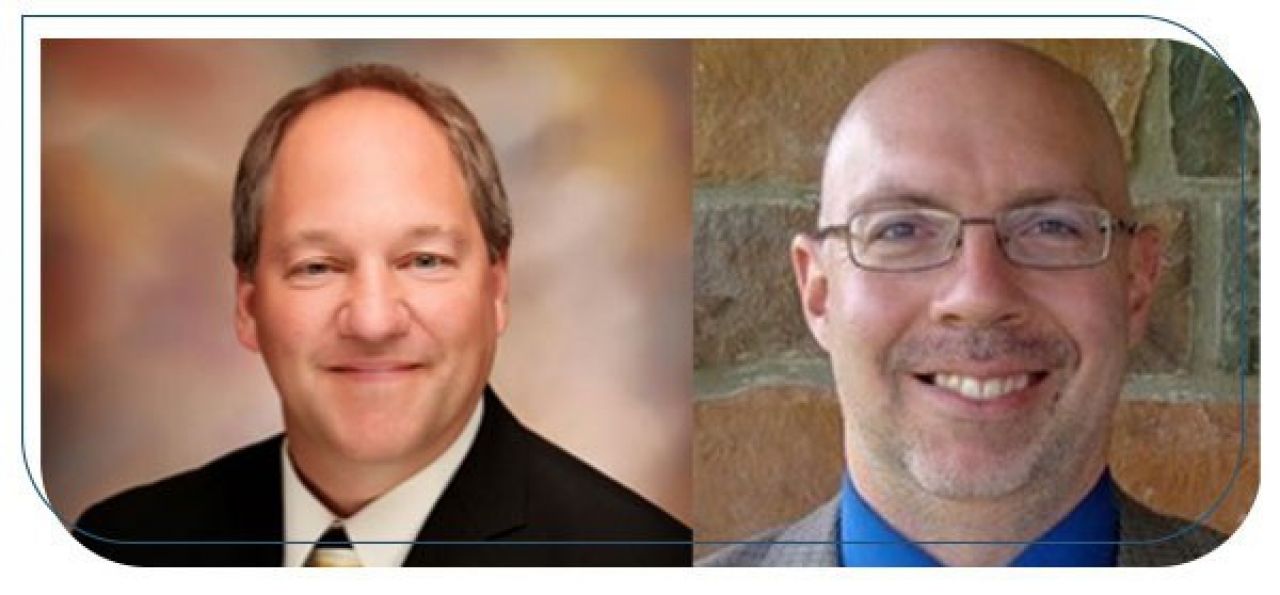Partner Post Red Lion leaders show how much they care about educators, students through innovative offerings
By Danielle Butville

Red Lion’s Superintendent of Schools, Dr. Scott Deisley (left), and Chief Instructional Officer, Eric Wilson, forged a new partnership with the Initiative to support personalized professional learning. Credit: Provided
Five-thousand students attend public schools in Red Lion, a small town in southern Pennsylvania. But like many U.S. communities, its school district faces big challenges around difficult topics.
"When you look at the climate right now, everything is a controversy," says Dr. Scott Deisley, Superintendent of Schools for the Red Lion Area School District. "You and I would struggle to find three people who agree what day it is."
Deisley and his colleague Eric Wilson, Chief Instructional Officer, share a passion for their district and community. They recognize that teachers and school leaders are essential to addressing difficult topics with stakeholders and need support and professional learning to do so effectively.
Deisley and Wilson partnered with the Initiative to offer a yearlong inquiry community around difficult topics to Red Lion educators.
When they introduced the program this past summer, Deisley and Wilson hoped seven or eight educators would join. The first inquiry community—a group of 20 committed classroom teachers, specialists, and administrators for 2021-22—was larger than they had ever imagined.
Deisley and Wilson find the professional learning provided by the Initiative supports their teachers in creating safe communities and identifying the skills and dispositions they want their students to have.
"We want our teachers to be successful. We want our students to be successful," Wilson says. "And this is one of those personalized learning opportunities where that can happen."
While personalized learning for students is common in school districts, professional development for educators often involves a traditional "one size fits all" model. The Initiative works with districts like Red Lion to reimagine professional learning: creating and sustaining inquiry communities that tie learning to educators' individual work, support the needs identified in their local context, and position educators as knowledge creators with agency in their practice.
"We're really focused on collective teacher efficacy," Deisley says. "Trying to get groups of teachers to realize what they are doing matters. That they have a collective influence. Once we do that, then our kids develop collective efficacy. Eventually, that's going to have an impact in our greater community."
Knowing the importance of this work for their district, Deisley and Wilson thought creatively about incentives that would support teacher participation. They offered educators who complete the yearlong program a step up on the salary schedule—the equivalent of three graduate credits.
"We realized this isn't a college course," Deisley says, "but we considered it one for the sake of movement on the salary scale because we believe in the work the teachers are doing—work that can lead to direct implementation in practice."
The district strives to prepare all students to reach beyond their greatest potential, thus becoming responsible and productive citizens, Deisley and Wilson said. They believe the time is now to help their teachers and students develop empathy, think critically, and gain self-efficacy.
Seeing positive impact from its collaboration with the Initiative, the district plans to set up multiple inquiry communities in 2022-23.
"We talk about long-term effects, and I would like to see this continue for multiple years because the more teachers that we can grow through this programming, the more kids that are going to be exposed to it," Wilson says. "In 15 or 20 years, the community as a whole will have that background of shared understanding and empathy."
